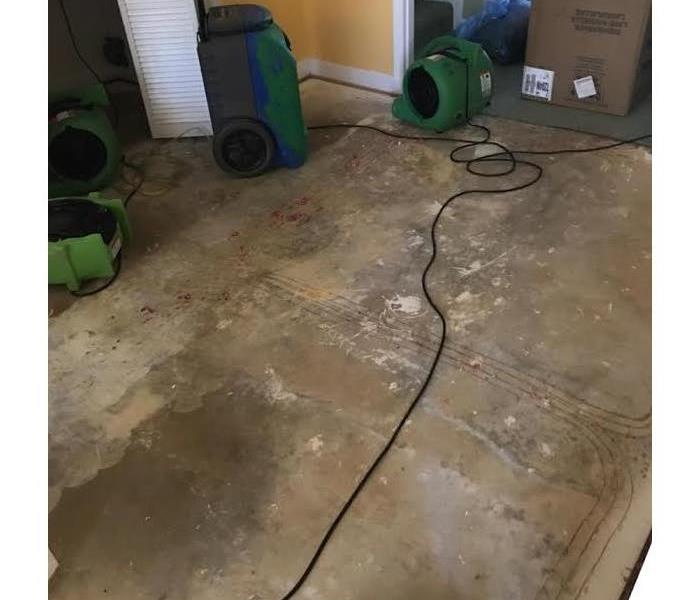Useful Tips for Water Damage Restoration You Can Apply Today
6/7/2017 (Permalink)
Useful Tips for Water Damage Restoration You Can Apply Today
Water can be highly destructive especially in places it's not supposed to be- water in a home for instance. Waking up to an overflow of water in your bathroom, a burst pipe in your kitchen, or a basement full of water can ruin a homeowner's entire day. If they don't act fast, they probably will have pretty much more to worry about since water cleanup can be an expensive activity.
Potential Causes of Damage from Water
There are many potential causes of flood damage all culminating in different levels of destruction of property in your house. The source of damage from water in your business is a major determinant of what mitigation steps you should take to minimize the damage and save money you could have used for restoration and repair. The most frequent causes of water damage in American homes include:
Flooding due to natural causes such as heavy storms, tsunami, or a hurricane can lead to standing water in home or business. In this type of damage, flooding occurs outside and causes in-house flooding when the water finds its way into a home. Also, heavy downpour can cause leakage on the roof and lead to flood damage in a house.
Burst pipes inside a house can lead to flooding. Mitigation will be difficult for big leaks. Small leakages, however, if they go unnoticed for a long time can result in massive mold damage.
Broken or leaky water heaters can be a source of unwanted water in a business or home. If the water heater is old or ill fitted, it may lead to leakages, and eventual water damage and mitigation could be expensive.
Overflowing sinks and toilets- If sinks and toilets are fully or partially blocked thus restricting the flow of water, it could lead to flood damage. Homeowners should act fast when they notice a clogged sink drain or a blocked toilet to avoid instances of damages from water in their homes.
If there is a fire in your house, you could end with two types of damages: fire damage and flood damage. Flood damage will result in the fire-fighters efforts to put out the fire.
Water Damage Restoration Tips
If you come home to a flooded house, here's what homeowners need to do to minimize the damage from water before help arrives.
Find the origin of water and shut it down. Homeowners might have to cut the supply of water to their houses if the source of flooding is a burst pipe.
Stay safe, avoid electrocution or further water damage. Switch off electricity and unplug all electrical appliances before you commence on water cleanup and restoration.
Assess the amount of water damage that has occurred. If it's a small leak that hasn't spread to sensitive areas, homeowners can probably perform the water cleanup process by themselves. But if damages are extensive, the best option would be to call a professional water damage restoration company.
Move your furniture and other valuable property to safer grounds, away from the water. You can put them upstairs or in the attic.
Drying the water in a home should the challenging part of the mitigation process. Use towels and a vacuum cleaner for drying out the room completely and avoid the growth of mold.
Open windows and let air into the room. Turn on the dehumidifier and get it drying out the moisture in the room to prevent mold growth. This is an important part of the water cleanup process and drying.
For help today in Fort Mill, Rock Hill, Tega Cay, Clover and all of York County call today. We are located just south of Charlotte in South Carolina.





 24/7 Emergency Service
24/7 Emergency Service
